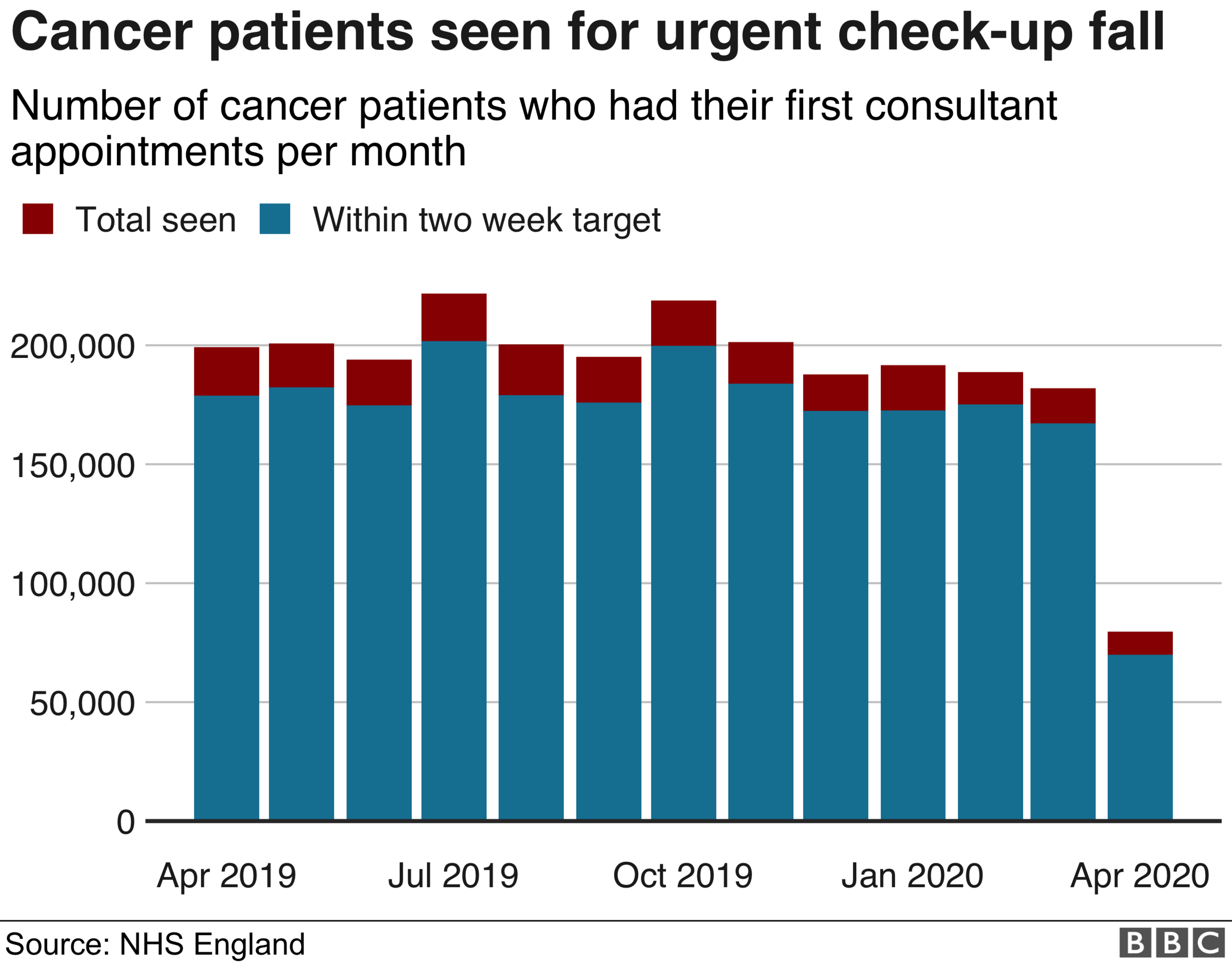Coronavirus: Virus misinformation, workers' pay rise and herd immunity
- Published
Here are five things you need to know about the coronavirus outbreak this Tuesday morning. We'll have another update for you at 18:00 BST.
1. Misinformation report
Misleading and harmful online content about coronavirus has spread "virulently" because the UK still lacks a law to regulate social media. That's the verdict from an influential group of MPs. They highlight rumours of fake cures and conspiracy theories about 5G technology and vaccines, and say government recommendations to reduce harm must be urgently implemented and enforced. Google and Facebook insist they are taking action. Read more on the human cost of virus misinformation.
"There is no virus, it’s 5G radiation poisoning"

2. Pay rise
Almost 900,000 public sector workers, including doctors, teachers and police officers, are to get an above-inflation pay rise. The chancellor said the workers made a "vital contribution", particularly during the pandemic, but Labour argues the rises will not make up for years of real-terms cuts. BBC business correspondent Dharshini David says tough questions will be asked about affordability given the pressure on budgets caused by coronavirus. Not all settlements will be UK-wide.


3. Cancer deaths
There could be more than 3,500 avoidable cancer deaths in England in the next five years as a result of the pandemic, according to researchers. Fewer people have sought advice for potential symptoms due to fears of catching the virus, and some cancer services, like routine screening, have been disrupted. But study leader Prof Clare Turnbull said taking fast action now could still turn things around.


4. Herd immunity
The BBC has spent months speaking to scientists advising the government to try to find out how important the concept of herd immunity was to the strategy adopted at the beginning of the outbreak. Herd immunity is achieved when a large percentage of a population has become immune to an infection, either because they've caught it or been vaccinated. Find out more by watching Panorama - Britain's Coronavirus Gamble on BBC iPlayer.

Cheltenham Festival went ahead in March amid warnings the UK should already have gone into lockdown

5. Lockdown start-ups
Ten-year-old Arlo Lipiatt, from Bristol, came up with a lockdown project to create a music fanzine and Pint-Sized Punk has become a surprise hit. He's secured interviews with the likes of Manic Street Preachers, and has orders coming from as far afield as Australia. Not all start-up enterprises have it easy, though, and the pandemic has created extra challenges, as our technology of business reporter explains.
How a 10-year-old created a lockdown print hit for punk fans

And don't forget...
You can find more information, advice and guides on our coronavirus page and get all the latest in our live page.
Plus, with summer holidays abroad back on the cards, what might your trip be like? Here we tell you what to expect.


What questions do you have about coronavirus?
In some cases, your question will be published, displaying your name, age and location as you provide it, unless you state otherwise. Your contact details will never be published. Please ensure you have read our terms & conditions and privacy policy.
Use this form to ask your question:
If you are reading this page and can't see the form you will need to visit the mobile version of the BBC website to submit your question or send them via email to YourQuestions@bbc.co.uk, external. Please include your name, age and location with any question you send in.

HOSPITAL SPECIAL: The human stories behind the headlines
JESSE LINGARD'S HOME WORKOUT: Can you keep up?
